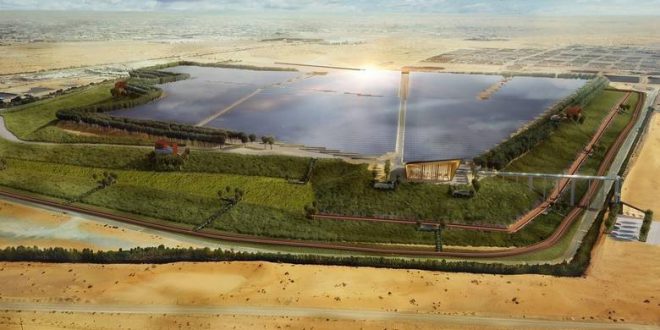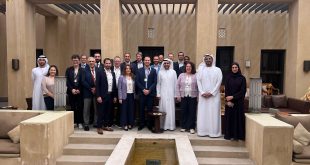To build this solar farm, the emirate will first have to reach its zero-waste target and close the Al Saja’a landfill.
A 47-hectare landfill in Sharjah will be converted into a solar energy facility once the area is capped, sustainability pioneer Bee’ah announced on Monday. Set to be the first of its kind in the region, this solar energy landfill project will generate more than 42 megawatts of energy per year.
To build this solar farm, the emirate will first have to close the Al Saja’a landfill and reach its zero-waste target.
Bee’ah has been helping Sharjah divert its waste from landfills, recently achieving a 76 per cent rate. It is expected to hit the 100 per cent waste diversion soon, with the launch of the Sharjah Waste to Energy Facility in 2021.
The Sharjah Waste to Energy Facility has an annual capacity of processing 300,000 tonnes of non-recyclable waste to generate 30 megawatts of electricity.
Upon reaching the zero-waste target, Bee’ah will then be able to repurpose the Al Saja’a landfill into a solar energy farm.
Salim Al Owais, chairman of Bee’ah, said: “The UAE has made great strides in the development of renewable energy projects, and Bee’ah is keen to continuing its progress. This new landfill solar project is a remarkable landmark achievement for Bee’ah, as we continue to push boundaries of both waste management and clean energy as part of our overarching mission for sustainability.”
Achieving renewable energy targets
In the first phase of the project, the landfill will be converted into a 270,565sqm solar area with a projected output of 24 megawatts. The second phase will convert an additional 200,099sqm to produce solar power of 16 megawatts.
Bee’ah will also develop an innovation and learning centre near the new solar farm to educate visitors on the importance of protecting the environment and renewable energy projects.
Khaled Al Huraimel, Group CEO of Bee’ah, said: “Bee’ah aims to make environmental sustainability a reality, and this investment to rejuvenate the Al Saja’a landfill for long-term solar infrastructure will help Sharjah attain its renewable energy targets, and reduce our dependence on fossil fuel.”
Closed landfills are areas that are no longer in active use for solid waste disposal but still contain deposited waste. Finding productive uses for closed landfills is typically challenging as it requires extensive environmental remediation. Monitoring for 30 years before redevelopment is usually a viable option.
Turning closed landfills into solar farms, on the other hand, can benefit the environment with limited requirements for access and remediation work, making this approach both economical and eco-friendly.
Since 2007, Bee’ah has transformed dumpsites into fully engineered landfill cells, with advanced aerial drones to monitor the landfills. Drought-tolerant greenery brings the site to life, while addressing problems of soil stability, groundwater contamination and greenhouse gas emissions. Irrigation for such landscaping uses only recycled gray water.






